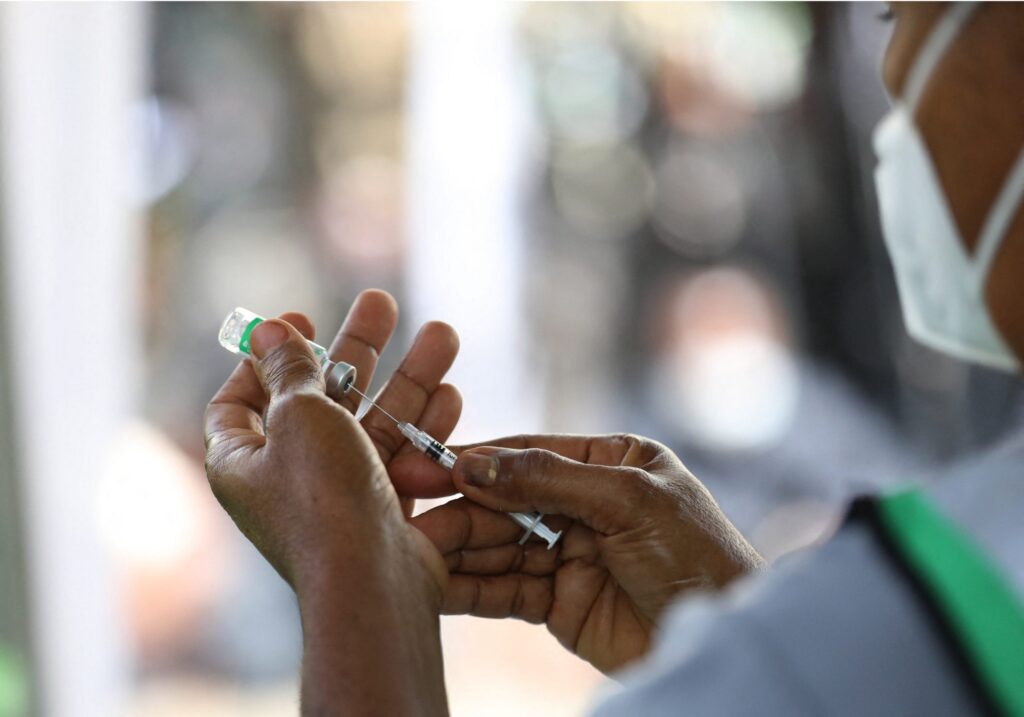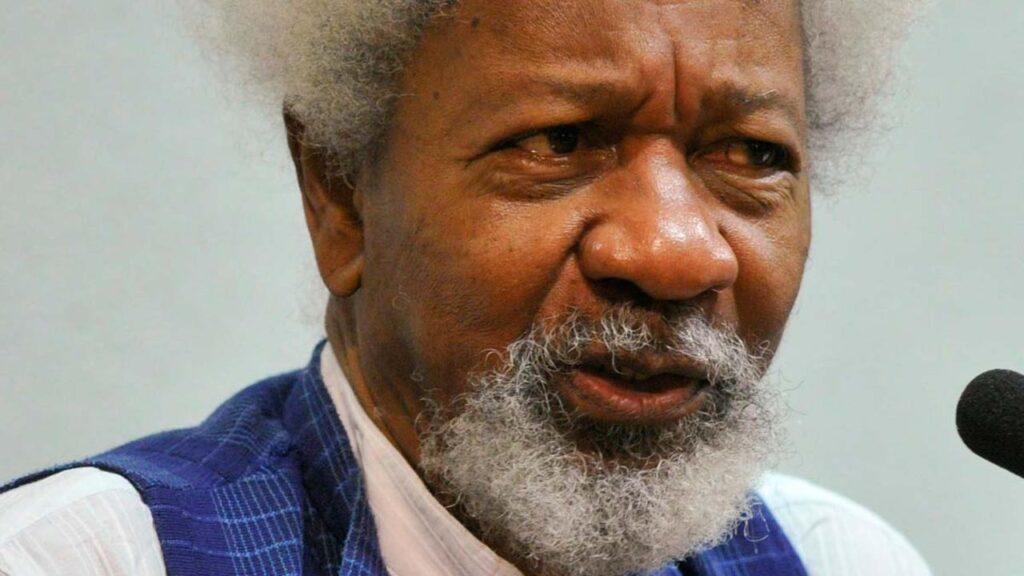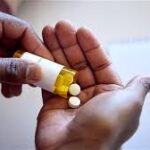
There are fresh concerns that COVID-19 might become unstoppable as a new study of the United Kingdom (U.K.) and South Africa variants of Severe Acute Respiratory Syndrome Coronavirus type 2 (SARS-CoV-2) predicts that current vaccines and certain monoclonal antibodies may be less effective at neutralising these variants and that the new variants raise the specter that reinfections could be more likely.
The study was published in Nature on March 8, 2021. A preprint of the study was first posted to BioRxiv on January 26, 2021.
The study also found that certain monoclonal antibodies used now to treat COVID patients might not work against the South Africa variant. And based on results with plasma from COVID patients who were infected earlier in the pandemic, the B.1.351 variant from South Africa has the potential to cause reinfection.
Against the U.K. variant, most antibodies were still potent, although the neutralising activity of two antibodies in development was modestly impaired.
Also, an earlier research at Washington University School of Medicine in St. Louis indicates that three new, fast-spreading variants of the virus that cause COVID-19 can evade antibodies that work against the original form of the virus that sparked the pandemic. With few exceptions, whether such antibodies were produced in response to vaccination or natural infection, or were purified antibodies intended for use as drugs, the researchers found more antibodies is needed to neutralise the new variants.
The findings, from laboratory-based experiments and published March 4 in Nature Medicine, suggest that COVID-19 drugs and vaccines developed thus far may become less effective as the new variants become dominant, as experts say they inevitably will. The researchers looked at variants from South Africa, the United Kingdom and Brazil.
MEANWHILE, a new modeling study published in the journal Science estimates the B.1.1.7 severe acute respiratory syndrome coronavirus 2 (SARS-CoV-2) variant is 43 per cent to 90 per cent more transmissible than previous coronavirus variants. The variant was initially found in Southeast England last fall.
Researchers from the London School of Hygiene and Tropical Medicine predict a higher number of coronavirus deaths in England than the number of deaths recorded in 2020.
However, to support the country’s effort in monitoring the variants of SARS-CoV-2 in the country, the Minister of State For Health, Dr. Adeleke Mamora has inaugurated Nigerian Institute of Medical Research’s (NIMR) new Next Generation Sequencing (NGS) machine.
Next generation sequencing is a type of diagnostic technology that can determine, among other things, the genetic sequence of a virus. Comparing sequencing results over time can help scientists understand if and how viruses mutate.
Mamora, who spoke at the commissioning of the machine, MGI DNBSEQ-G50, with a robotic nucleic extraction and sample preparation system, said setting it would not only serve in the molecular surveillance of SAS-CoV-2, but prepare Nigeria in the fight against Lassa fever virus, Yellow fever, Ebola and other infectious agents characterised by the genetic code.
He said the importance of the sequencing machine in this era of COVID-19 pandemic could not be over emphaisised as the world has grappled with one of the highest mortalities and morbidity incidences in the history of mankind.
Mamora noted that the ability of the SARS-CoV-2 virus to mutate thereby changing its transmission dynamics and possibly escaping available vaccine and therapeutics have pressured the world to conduct massive parallel sequencing of the virus, which has helped in making vital public health decisions.
“The acquisition of this next generation sequencing machine speaks volumes and it is going to assist us in the body of knowledge put together in this COVID-19 pandemic, particularly with respect to the mutation, which the virus undergoes, that is, the possibility to change the status and resulting to what we call ‘variants of concern’ in terms of what it means for people to be infected.
“It would be something that public health experts would be happy to know because it would help us in terms of public health and decisions taking,” he said.
Mamora further advised that everyone opportune to take the COVID-19 vaccine should not hesitate as it might get to a point where evidence of vaccination would be required before gaining access to countries.
“It is advisable to take the COVID-19 vaccines because we might get to the point that even when you want to go outside of the shores of Nigeria, you may be required to produce evidence of having being vaccinated because every country has the right to protect itself. That is why it is important for people who have the opportunity to take the vaccines to take it without hesitating,” he said.
Speaking on the 3, 000 fake vaccines confiscated in China, and the federal governments effort in ensuring these vaccines do not get to Nigeria, Mamora said the National Agency for Food and Drug Administration and Control (NAFDAC) is on ground to check all vaccines that get into the country and give assurance on its safety for use.
He however noted that Nigeria does not get its vaccines from China. “Our vaccines are not from China and that is why we have NAFDAC look into these vaccines when they come in and give us the assurance that they are safe.”
On encouraging local production of vaccine, the health minister said: “We cannot stop local production of vaccine. We have to continue to encourage them. There is need to support their effort so that we can have our homegrown vaccine and that is ultimate. In this case we don’t have to look at any other country to give us vaccines.
“So in terms of cost, affordability and accessibility, it is in our own interest to ensure that we get to that point where we can make claim to our own home grown vaccine.”
Mamora further said that the federal government appreciates the work of journalists in the response activities of COVID-19, as they are being considered as part of the strategic group of frontline worker.
He assured that the National Primary Health Care Development Agency (NPHCDA), looking at ensuring that journalists also take the vaccine when available.
Speaking earlier about the machine, the Director general of NIMR, Prof. Babatunde Salako, said the acquisition of the sequencing machine has put behind the challenge of the inability to carry out full geometric sequencing of the Nigerian strain of the COVID-19 virus.
He said the machine was acquired through the support of the Federal Ministry of Health with the Federal Government COVID-19 intervention fund, which he said has made it possible for NIMR to establish a full geometric sequencing laboratory, which is capable of supporting the Nigerian Centre for Disease Control (NCDC).
Salako said Nigeria did succeed in ramping up qPCR testing, which was hitherto not popular prior to COVID-19. We are also making efforts in ramping up sequencing of the virus in order to support our looming sequencing infrastructure in the country. Through our network, new strains are being identified in Nigeria in addition to the B.1.1.7, B.1.251 and other variants of concern making rounds in the world. The nest generation sequencer will support the country’s effort in the real time monitoring of variants of SARS-CoV-2 in our nation,” he added.













